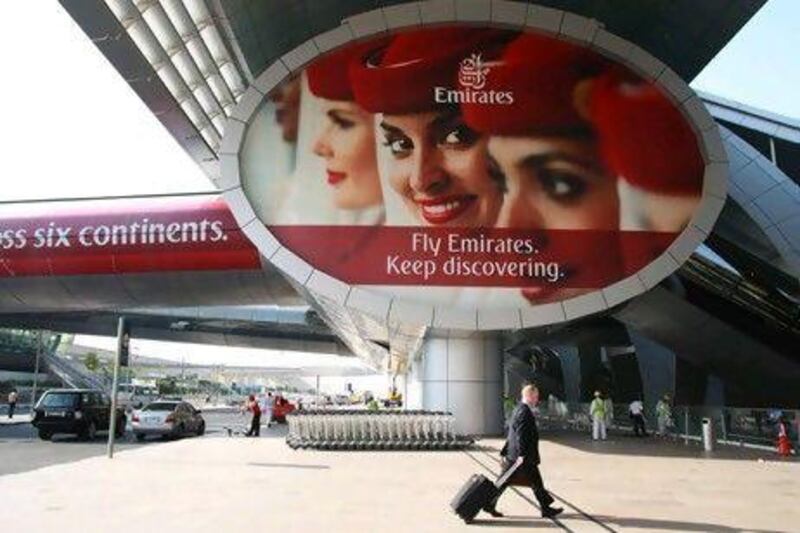Emirates Airline has lined up financing for the delivery of billions of dollars' worth of new aircraft and is set to tap the bond market for more cash in the near future.
The cash injection comes as the airline prepares to accelerate its fleet expansion as it receives more Airbus A380 superjumbos and Boeing 777-300ERs, putting new demands on its financing abilities.
The Dubai airline completed lending terms with three foreign banks for the financing of 10 of the wide-bodied, long-haul jets from Airbus and Boeing, worth US$3 billion (Dh11.01bn) at list prices before standard industry discounts.
Germany's Doric Asset Finance, Natixis of France and Jackson Square Aviation, based in San Francisco, were mandated by Emirates to finance the five A380s and five 777s, which are scheduled to be delivered by July next year.
Emirates has also completed an operating agreement with Dubai Aerospace Enterprise (DAE) to lease seven new Boeing freighters, including two 747-800Fs and five 777s. Emirates did not say when it planned to take delivery of the aircraft, which are valued at more than $2bn at list prices.
The announcement of the DAE deal came alongside the airline posting its annual results last month at a period when the Dubai leasing firm has been cancelling orders from Airbus and Boeing for the past year. The orders stem from a 2007 buying spree, less than a year before the global downturn, when DAE agreed to buy 200 jets.
Emirates, the world's largest airline by international capacity, plans to take delivery of two jets a month for the next six years. Last year it said it would need more than $28bn through to 2017 for the expansion of its fleet, or twice the amount it has raised since 1996.
Emirates has traditionally diversified its funding sources to include regional and international banks, export-credit-backed deals, bonds, Islamic financing and alternative structures. While European and US carriers successfully pushed to raise the cost of export-credit deals to level the playing field, Emirates has said it would not be adversely affected by the changes. While it holds cash reserves of Dh16bn, the airline is exploring a bond sale and is nearing the end of a financial roadshow across Asia and Europe.
"With the obligations we have coming up, it's nice to have the cash buffer to deal with anything ahead of us," Tim Clark, the president of Emirates, told Bloomberg News. "Can we do without it? Yes, we can. We are in a comfortable position."
The airline has just reported its most profitable annual results, with the 12 months ending in March yielding a Dh5.93bn profit as it carried record numbers of passengers and freight. Earlier this year, as unrest hit some parts of the Middle East and North Africa region, Emirates pulled out of a bond sale, citing unattractive terms.
Emirates is weighing a benchmark five-year dollar bond with early talk indicating pricing of 350 basis points over mid-swaps, Reuters reported on Monday. Mid-swap is the price calculated as the mid point between the bid and offer prices (buy and sell prices) on transactions (swaps). Although Emirates did not disclose how much it hoped to raise in the bond sale, such bond issues are generally worth more than $500 million.





